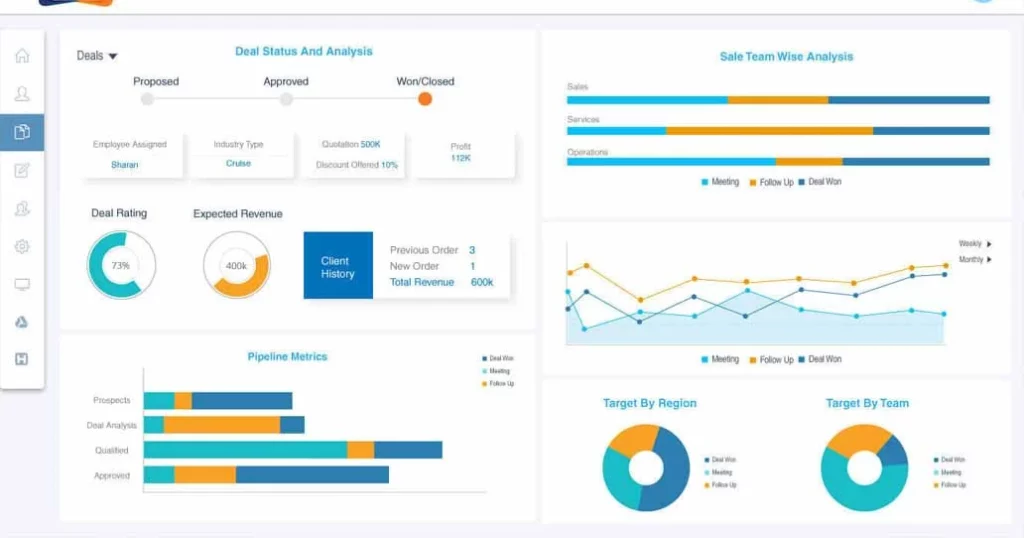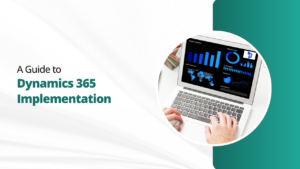Customer experience is vital to the success of any retail business. To establish long-term relationships with customers, retailers are turning to CRM systems. By using CRM, retailers can gain insights into customer behaviors and purchase history. This enables them to personalize interactions, enhance customer satisfaction, and foster loyalty. This blog explores how CRM in retail can improve customer experience.
What is CRM in Retail?
CRM in retail refers to a strategic approach to managing customer interactions. It involves capturing, organizing, and analyzing customer data from various touchpoints. CRM enables retailers to gain a comprehensive view of individual customers and segments. It allows for targeted marketing campaigns, personalized recommendations, and efficient customer service.
How Does CRM Work in Retail?
1. Data Collection:
CRM starts by collecting customer data by various means. It include online purchases, in-store transactions, social media interactions, and customer service interactions. This data includes contact information, purchase history, preferences, and interactions with the brand.
2. Data Organization:
The collected customer data is organized and stored in a centralized CRM system, creating a customer database. The CRM system categorizes and links customer information. It allows the retailers to have a view of customer interactions.
3. Customer Segmentation:
CRM helps retailers segment their customer base based on various criteria such as purchase behavior, buying frequency, and preferences. By segmenting customers, retailers can modify their marketing strategies, promotions, and personalized communications to target specific customer groups.
4. Personalization:
CRM enables retailers to personalize interactions with customers by using the customer data. With CRM in retail, retailers can send personalized emails based on purchase history. They can also offer exclusive discounts, and provide customized offers. This personalization enhances the customer experience and builds stronger relationships.
5. Marketing Automation:
CRM systems often integrate with marketing automation tools. It allows retailers to automate marketing campaigns based on customer triggers and behaviors. For example, a customer who abandons their online shopping cart can receive an automated email reminder.
6. Customer Service and Support:
CRM helps retailers provide better customer service by centralizing customer data and interactions. When customers contact customer service, representatives can access their complete history and preferences. It enables personalized and efficient support.
7. Loyalty Programs:
CRM plays a crucial role in managing loyalty programs. Retailers can track and reward customer loyalty based on purchase history. This helps retailers nurture loyal customers, drive repeat purchases, and encourage advocacy.
8. Analytics and Reporting:
CRM systems provide analytics and reporting capabilities. It allows retailers to gain insights into customer behavior, preferences, and trends. Retailers can measure the effectiveness of marketing campaigns and track customer acquisition.
9. Omni-channel Integration:
CRM facilitates the integration of customer interactions across different retail channels. It includes online platforms, brick-and-mortar stores, mobile applications, and social media.
10. Continuous Improvement:
CRM enables retailers to refine their customer strategies. By analyzing customer data and performance metrics, retailers can identify areas for improvement. Moreover, they can make data-driven decisions to meet evolving customer needs and expectations.

Features of CRM in Retail:
Here are the key features of CRM in retail:
1. Customer Data Management:
CRM systems manage detailed customer information, including contact details, purchase history, and feedback. This centralized database allows retailers to have a comprehensive view of each customer.
2. Sales and Inventory Tracking:
CRM helps retailers track sales in real-time, enabling better inventory management. This ensures that products are in stock when customers want them.
3. Customer Service Integration:
CRM systems often integrate with customer service platforms. allowing customer support agents to access customer information quickly. This results in more efficient and personalized customer service.
4. Mobile Access:
Modern CRM systems are often mobile-friendly. It allows retail staff to access customer data and sales information from smartphones. This is especially useful for in-store customer interactions.
5. Inventory Forecasting:
CRM helps in inventory forecasting by analyzing historical sales data and market demand. This prevents overstocking or understocking issues.
6. Customer Feedback and Surveys:
Retail CRM systems often include tools for collecting and analyzing customer feedback. This can help retailers identify areas for improvement and gauge customer satisfaction.
7. Integration with E-commerce Platforms:
For retailers, CRM systems can integrate seamlessly with e-commerce platforms. It ensures a consistent customer experience across online and offline channels.
8. Reporting and Dashboards:
CRM systems generate reports and dashboards that provide insights into key performance metrics. It allows retailers to monitor their performance and adjust their strategies accordingly.
9. Security and Data Protection:
Data security is crucial. CRM systems include features to protect customer data and compliance with privacy regulations.
Conclusion:
In the retail industry, customer loyalty and experience are paramount to success. By using CRM systems, retailers can gain a deep understanding of their customers. They can utilize this knowledge to personalize interactions, and make data-driven decisions. CRM enables retailers to build customer loyalty, drive repeat purchases, and create brand advocates. Embracing CRM in retail is a transformative approach that can lead to improved customer satisfaction.
If you need any services related to CRM customizations, feel free to contact us. We have a team of experts to evaluate your problems and pose an effective CRM solution for them.




